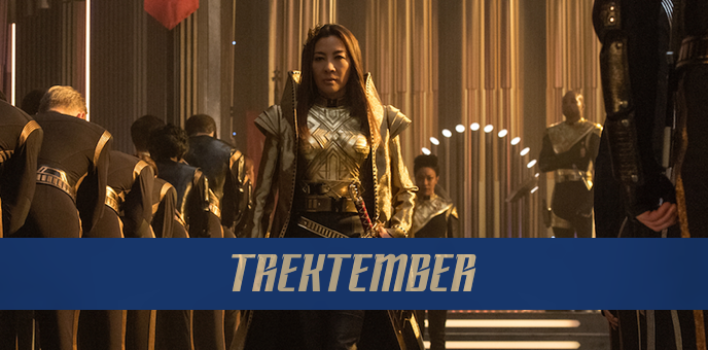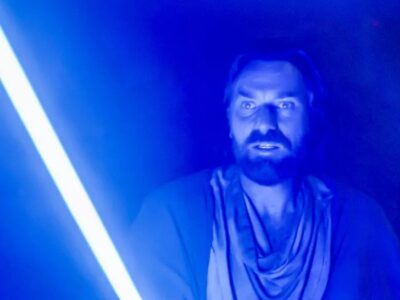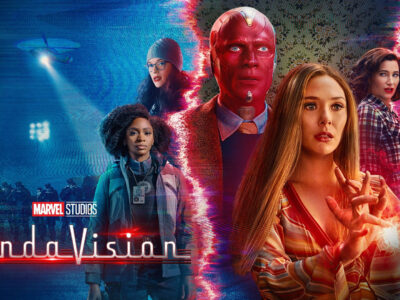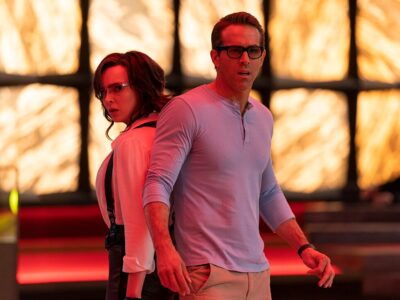Trektember: Vaulting Ambition | Star Trek: Discovery
While some reviews of Star Trek: Discovery have lauded the second half of the first season because “the stakes are high, and the showrunners and writers aren’t afraid to let us know nothing is sacred,” I, unfortunately, didn’t see it the same way. To me, it was more desperation, that statement. It showed that Star Trek: Discovery was falling victim to the latest storytelling mistake that popular shows like The Walking Dead or later seasons of Game of Thrones have. In this case— the desire to be sensational over creating real character moments. Ultimately, it’s the desire to surprise the audience more than invite them into the heart of a great character arc. Sure, you get some water cooler chatter the next morning, but it reduces the overall quality of the product.
With this in mind, no episode of Discovery is more frustrating than “Vaulting Ambition.” This episode is the pinnacle of plot twists and “ah-ha” moments. Unfortunately, by this time in the series, I already care so little about most of the characters and storylines that these twists and moments landed with all the impact of a forcefully thrown feather.
That likely leads you to wonder why, if I am so down on the series, would I even bother reviewing an episode of Discovery? Well, I do go into my love for (basically) all things Star Trek on our Patreon episodes, but honestly, even the worst Trek gives us plenty to chew on— however poorly I think it’s presented. So, let’s dive in.
“Vaulting Ambition” is, if nothing else, the episode where all the scales are removed from our eyes.
AHEM. *Spoilers*
We learn that Ash Tyler’s schizophrenia is due to the fact that he is actually our ill-fated, early-episode Klingon, Voq, who has been surgically altered and “Trek scienced” into a human. Our spore drive operator, Paul Stamets, is not only alive but in some type of dream state talking to his mirror universe self. And, probably most shockingly, we discover that Lorca is actually the Lorca from the mirror universe. That is a lot.
Despite all these reveals, it is telling the most interesting thing in the episode is something we’ve already learned in previous episodes and, I would argue, the most Trek idea in this episode. This all has to do with the mirror universe Terran Empire. When our main protagonist, Michael Burnham, reveals to Emperor Georgiou that she is from a parallel universe, her incredible claim isn’t met with eye rolls and skepticism, but a cautious, known fear. Georgiou reveals that she is all too familiar with Burnham’s universe.
Emperor Georgiou: “Equality, Freedom, Cooperation…”
Michael Burnham: “Cornerstones for successful cultures…”
Emperor Georgiou: “Delusions that Terrans shed millennia ago. Destructive ideals that fuel rebellions and I will not let you infect us again.”
This is the idea that I think will shape season two. Again, spoilers…
While we only get the beginning glimpses of the differences between the two universes, this is at the heart of it. One Federation is built on the idea of peace, cooperation, and inclusion, while the Terran Empire rules with an iron fist, exalting races above others (to the point of using some races as food!). There can be no room for the dignity of all life and, in its truest form, is the embodiment of “survival of the fittest.”
Of course, I don’t think that anti-creationist out there would see themselves— or the philosophies of the Terran Empire— as fitting in well in the parallel universe and I think that is telling. I think the irony of setting up this juxtaposition is that it has always been believed that the more we advance scientifically, the less we’d need religion and the “archaic” morality that comes with it. While what seems to be happening is that humanity, with all its advancement, is actually becoming more religious. If anything, Gene Roddenberry’s vision of the future needs religion because without it, it would probably look like the Terran Empire. It’s the logical conclusion of a survival of the fittest mentality. And, on one hand, it’s actually kind of nice to see the depiction of actions that are true to the worldview being evangelized.
I digress.
Star Trek: Discovery has not taken that dive yet. I doubt it will be so self-incriminating because even though it is trying to carve out its own slice of the Trek mythology, the idea that humanistic ideals and science will lead us to a better future is foundational— whether we agree or disagree.
Regardless of my personal opinion about the execution of the latest entry into Star Trek canon, it is hard to explore that universe without bringing up questions that are fundamental to the whole. And considering that I may not be the only person who shared the opinion that this new show was not exactly firing on all cylinders, who knows what we will get in season two. There certainly is still plenty out there to discover.
• • •
Trektember is an annual series about Star Trek; this year, we’re examining the first seasons of Star Trek: Discovery and The Orville. For more information on this series, click here; or, to read every article from the beginning, click here!








Pingback: Trektember: Season 3 Episode List | Reel World Theology